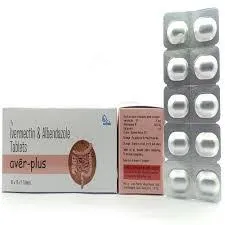- Afrikaans
- Albanian
- Amharic
- Arabic
- Armenian
- Azerbaijani
- Basque
- Belarusian
- Bengali
- Bosnian
- Bulgarian
- Catalan
- Cebuano
- Corsican
- Croatian
- Czech
- Danish
- Dutch
- English
- Esperanto
- Estonian
- Finnish
- French
- Frisian
- Galician
- Georgian
- German
- Greek
- Gujarati
- Haitian Creole
- hausa
- hawaiian
- Hebrew
- Hindi
- Miao
- Hungarian
- Icelandic
- igbo
- Indonesian
- irish
- Italian
- Japanese
- Javanese
- Kannada
- kazakh
- Khmer
- Rwandese
- Korean
- Kurdish
- Kyrgyz
- Lao
- Latin
- Latvian
- Lithuanian
- Luxembourgish
- Macedonian
- Malgashi
- Malay
- Malayalam
- Maltese
- Maori
- Marathi
- Mongolian
- Myanmar
- Nepali
- Norwegian
- Norwegian
- Occitan
- Pashto
- Persian
- Polish
- Portuguese
- Punjabi
- Romanian
- Russian
- Samoan
- Scottish Gaelic
- Serbian
- Sesotho
- Shona
- Sindhi
- Sinhala
- Slovak
- Slovenian
- Somali
- Spanish
- Sundanese
- Swahili
- Swedish
- Tagalog
- Tajik
- Tamil
- Tatar
- Telugu
- Thai
- Turkish
- Turkmen
- Ukrainian
- Urdu
- Uighur
- Uzbek
- Vietnamese
- Welsh
- Bantu
- Yiddish
- Yoruba
- Zulu
ನವೆಂ . 14, 2024 14:04 Back to list
dosage of albendazole for goats
Dosage of Albendazole for Goats A Comprehensive Guide
Albendazole is a widely used anthelmintic medication for treating a variety of parasitic infections in livestock, particularly in goats. Its efficacy against gastrointestinal nematodes and other parasites makes it a vital component in modern veterinary medicine. In this article, we will discuss the appropriate dosage of albendazole for goats, its mechanism of action, safety considerations, and administration methods.
Understanding Albendazole
Albendazole is a broad-spectrum anthelmintic belonging to the benzimidazole class. It works by disrupting the metabolic processes of parasites. The drug binds to beta-tubulin, preventing the polymerization of tubulin into microtubules, which are critical for the structure and function of cell cytoskeletons. This interferes with glucose uptake and energy production in the parasites, ultimately leading to their death. Due to its effectiveness, albendazole is commonly used in both clinical and preventative settings for goats.
Recommended Dosage
The typical dosage of albendazole for goats varies based on the specific formulation of the medication, whether it is a liquid, bolus, or powder. The standard dosing guidelines suggest administering albendazole at a rate of 10-15 mg per kilogram (mg/kg) of body weight. In practical terms, this usually translates to about 1-2 grams for an average adult goat. It's crucial to consider the weight of the animal; improper dosing can lead to ineffective treatment or toxicity.
In practice, the dosing regimen may differ depending on the type of parasite being targeted. For example, for routine deworming, a single dose may suffice. However, in cases of severe infestations, a follow-up dose after 7 to 14 days is often recommended to ensure thorough elimination of the parasites.
Administration Methods
Albendazole can be administered in various forms, including oral suspensions, boluses, and feed additives. The choice of administration method may depend on the specific situation of the goat and the preference of the handler.
dosage of albendazole for goats

1. Oral Suspension This is one of the most common forms used. The dosage can be easily measured and given directly into the goat's mouth using a syringe.
2. Boluses These are solid forms of medication that can be swallowed by the goat. They are ideal for those who find it challenging to manage liquids, although proper administration is required to avoid choking.
3. Feed Additives In some cases, albendazole can be mixed into feed, allowing for easy distribution among multiple animals. However, care must be taken to ensure that each goat receives the correct dosage.
Safety Considerations
While albendazole is generally safe when used correctly, it is essential to adhere to the recommended dosages to avoid potential side effects. Overdosing can lead to toxicity, with symptoms potentially including vomiting, diarrhea, and lethargy. Additionally, certain goats, such as pregnant or breeding does, may be more sensitive to anthelmintics, necessitating a cautious approach.
It’s important to follow withdrawal times if the goats are intended for meat production. The standard withdrawal period for albendazole is approximately 14 days, meaning that goats should not be sold for slaughter before this period has elapsed post-treatment to ensure that drug residues are below safety thresholds.
Conclusion
In conclusion, albendazole is a powerful tool in the management of parasitic infections in goats. Administering the correct dosage—generally 10-15 mg/kg of body weight—along with using appropriate administration methods, can significantly improve the health of your herd. However, safety considerations must always be taken into account, especially regarding pregnant animals and meat withdrawal times. Proper management and routine deworming can lead to healthier goats and improved productivity on the farm. Always consult a veterinarian before starting any treatment regimen to ensure it is appropriate for your particular situation.
-
Guide to Oxytetracycline Injection
NewsMar.27,2025
-
Guide to Colistin Sulphate
NewsMar.27,2025
-
Gentamicin Sulfate: Uses, Price, And Key Information
NewsMar.27,2025
-
Enrofloxacin Injection: Uses, Price, And Supplier Information
NewsMar.27,2025
-
Dexamethasone Sodium Phosphate Injection: Uses, Price, And Key Information
NewsMar.27,2025
-
Albendazole Tablet: Uses, Dosage, Cost, And Key Information
NewsMar.27,2025













